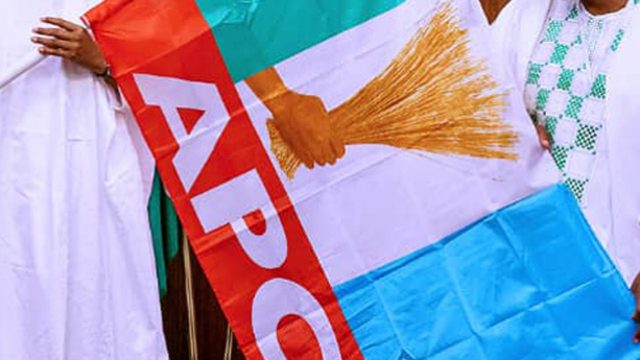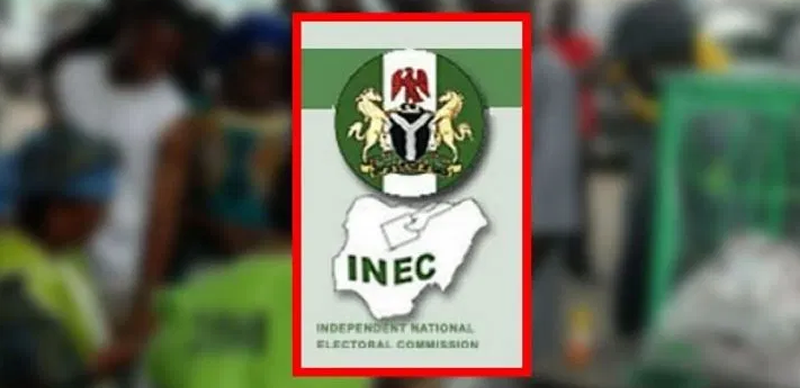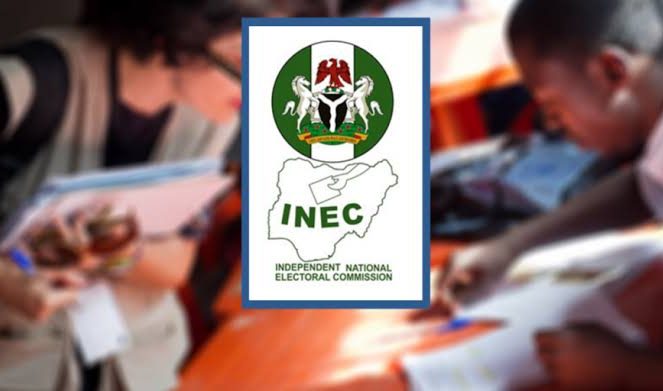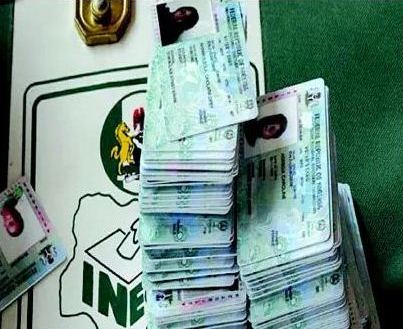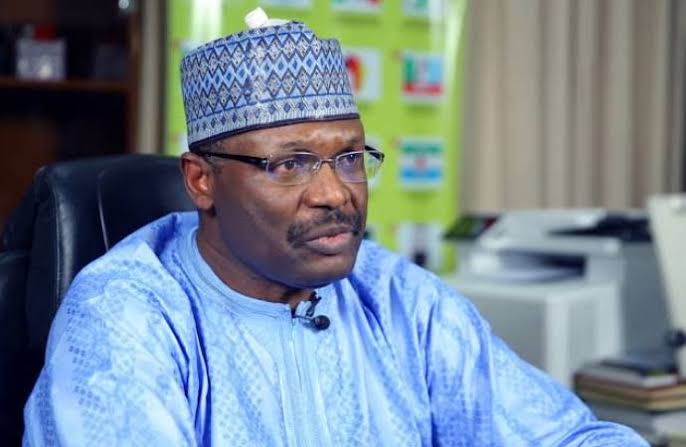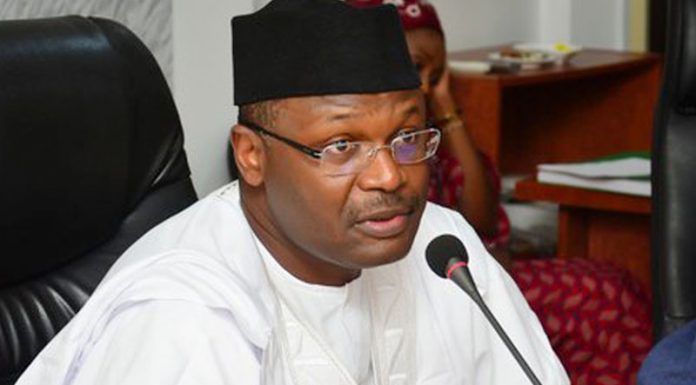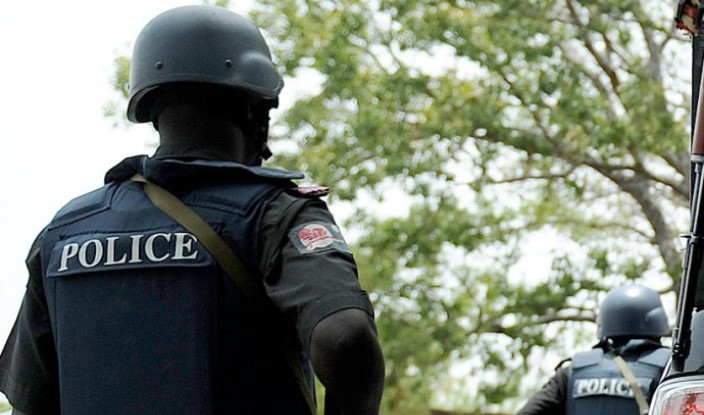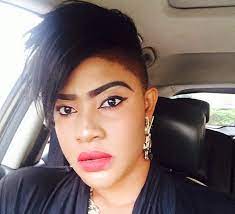Forget the loud noises about who is more corrupt amongst the three leading contenders for the office of the president of Nigeria from 29 May -Asiwaju Bola Tinubu of All Progressives Congress,APC, Wazirin Atiku Abubakar of Peoples Democratic Party,PDP and Mr Peter Obi of Labor Party,LP.
Who is guilty or not of graft which was at one point in time occupying the left and center of the activities leading to one of the most consequential elections in the life of our beloved country,has now paled into nothing.
In other words ,corruption as the lightning rod for election 2023 has been replaced by the scarcity of petrol, difficulty in obtaining Permanent Voters Card,PVC and hoarding of the redesigned naira which are the existential challenges that have been piling on each other and which have been keeping most Nigerians on queues to obtain for hours, days and even weeks on end.
Without a tinge of doubt,the three (3) highlighted factors would be the deciding issues or elements for the 25 February and 11 March general elections.
That is simply because they are the issues on top of the minds of practically all Nigerians,no matter their socioeconomic status.
The aforementioned maladies afflicting the entirety of Nigerians started manifesting after October last year when the Central Bank of Nigeria,CBN announced its naira redesign initiative to replace some old denominations of the naira from 15 December and the Department of State Security Services,DSS attempted to arrest the governor,Mr Godwin Emefiele for alleged involvement in sponsoring terrorism, following the introduction of the redesigned notes in the middle of December.
A high court judge in the Federal Capital Territory, FCT Justice John Tshoho denied the DSS the arrest warrant that it sought and the governor of the apex financial regulatory authority went under ground where he was hibernating until the dust settled and he returned to work in January.
Rather than be fazed and perhaps because the CBN governor had the full backing of President Mohammadu Buhari,swapping of the redesigned naira with the old remained a hot button issue.
Before the siege on Emefiele was eased off, the chairman of lndependent Electoral Commission, INEC Professor Mahmoud Jega was also in hot water for alleged impropriety relating to the declaration of his assets when he was taking up the role. He was to be arrested but the same FCT high court judge gave him reprieve by ruling in his favor.
So,once again tension rose and fell with regards to the conduct of the much anticipated 2023 general elections which comes up in a couple of weeks as Nigerians were gripped with anxiety on whether it would hold or not as many eligible voters scrambled get registered and receive Permanent Voters Cards, PVC.
Remarkably, the managing director of Nigerian National Petroleum Corporation, NNPC,Mr Meele Kyari who is Incharge of importation and distribution of petroleum products in Nigeria which has been in short supply for the better part of the last two years is also one of the three (3) stress points causing the populace a lot of anguish as they struggle in queues to get the commodity,but he has not been in the eyes of the storm in the manner that Mr Emefiele and Professor Yakubu have been under siege.
At least not from the Secret Police,but only from the motoring public that have been highly distressed and emasculated by the shortage of Premium Motor Spirit,PMS.
And the very stressful and energy sapping queues in petrol stations were persisting up to the moment l was writing this piece. So,there is every likelihood that Nigerians would vent their anger on their oppressors with their votes on 25 February and 11 March election days.
It is rather curious that elder statesman,Tanko Yakassi has been credited by the media to have called for the sack of the CBN governor for failing to ensure equitable supply and distribution of the redesigned naira by President Buhari.
But he did not make a similar demand for the sack of NNPC’s group managing director,even when petrol scarcity had become perennial.
The situation with petrol shortage is quite unlike the redesigned naira scarcity issue which is a challenge that has existed for barely one month.
And the shortage is owing to the hoarding of the sum of money that the CBN had released into the system by banks and individuals who believe that there is not enough redesigned currency available which is a misinformation that fake news purveyors had peddled by claiming that only about N300 billion had been printed,whereas about N2 trillion had been mopped as at 31 January.
That lie is what is further exacerbating the redesigned naira scarcity situation.
Because those that already have some of the redesigned are not putting them back into the system to recirculate.
Instead they are holding on to the cash tightly more so because withdrawals of cash from across bank counters have been reduced to as little as N20,000,which is far below what most people need.
And to debunk the notion that not enough cash has been pushed into the economy,the CBN should do well to share with Nigerians the volume of the redesigned currencies that it has printed and the quantity that has been distributed to each of the banks.
That would compel the Deposit Money Banks,DMBs to release the funds to the long suffering masses.
Then each of the banks should in turn give Nigerians a break down of how they are redistributing the funds region by region,state by state and city by city through power point presentations.
Once Nigerians believe that supply would match demand,the compulsive hoarding habit would abate.I can not understand why the CBN and banks are being timid instead of bullish and aggressive about it.
These are critical times that call for patriotism,not profit making.
If the CBN makes it clear that enough cash has been pushed into the system , as it is claiming,yet it seems not available as it should,then members of the public would realize that the redesigned cash is being hoarded by some politicians for sinister motives as being alleged in some quarters.
The CBN needs to be tough in the manner that the apex financial institution encouraged banks to publish in the mass media the names of chronic bank debtors and the naming and shamming compelled some of the debtors to pay up.
In like manner,if members of the public are aware of the amount that has been pumped into the banking system and believe it is sufficient,they would not engage in hoarding the currency in the manner that folks panic-buy petrol or any other commodity for that matter,when they suspect that the supply is inadequate.
It may also reveal that the cash is in the hands of some unscrupulous politicians and shift the blame and anger from CBN and banks where the venom of the people is currently directed hence the masses are venting their spleen on infrastructure of banks.
Now,returning to the comment by the elder statesman Yakassai demanding the sack of Emefiele as CBN governor, l would argue that it smacks of parochialism even as it tends towards being in the realms of prebendal politics driven by narrow ethnic sentiments.
In any case,the presidency had responded rather sarcastically to the octogenarian’s un altruistic demand by stating that the elder statesman needs help.And I consider such snide remark distasteful.
No matter how out-of-order they may be,we must not disrespect our elders by chiding them or being cheeky with them publicly, especially past leaders.
ln my view,we can not ridicule our statesmen,but only correct their errors,while according them respect.
It is saddening that it is the scenario of literally jumping into each other’s throat by political actors and purveyors of identity politics described above,is the new low that the politicization of the redesign of naira has dragged our country.
In a piece titled: “Comparative Analysis Of Buhari and Tinubu Chatham House Presentations”first published in my column on 15 December last year and widely shared on other traditional and online media platforms,l compared President Buhari’s visit to Chatham house- a British foreign policy think tank-during the run up to the elections in 2014 to Asiwaju Bola Tinubu’s visit in December last year to the same Chatham House in preparation for the February 2023 general elections.
One of the the significant differences that l had identified was that Buhari attended Chatham house after the elections were postponed by six (6) weeks and which gave him a bounce because it was assumed that the postponement was a desperate attempt by then PDP leadership to forestall Buhari’s imminent victory,while Tinubu was at Chatham house without the ugly event of postponement of 2023 elections,hence he failed to gain any momentum after the trip:
“Given that the circumstances surrounding Tinubu’s Chatham House presentation compared to Buhari’s are different in the sense that the 2023 election date has not been shifted: instead, president Buhari has been emphatic that it is sacrosanct, just as the Independent National Electoral Commission, INEC chairman, Professor Mahmood Yakubu has also been exuding similar confidence by harping on the fact that elections must hold despite the attacks on INEC personnel and facilities; the outcomes of both Buhari and Tinubu Chatham House attendance had to also be distinct from each other”
The assertion above was my opinion about three (3) months ago.
But with the current strident calls for the postponement of 2023 general elections that are presently rending the air, it would appear as if l was hasty in my conclusion.
That is if those calling for the postponement of the elections should have their way.
However, l doubt if president Buhari would buckle by reversing himself on 2023 elections because conducting an untainted, credible and fair election for a new set of rulers presents the last opportunity for him to leave a significant and positive legacy.
In my personal assessment, president Buhari appears resolute on doing the right thing.
But as things currently stand,election 2023 is not only looking like some events that happened in 2015 may be re-enacted,the ghosts of 1993 also appear to be looming large in the horizon.
And there are a plethora of reasons for the above assertions.
A cursory look at recent history of politics and elections in our country would reveal the parallels between 1993,2015 and the unfolding political events in present election season.
At least in terms of the current legal wrangling between the state and federal governments as well as the involvement of the judiciary in ways that could make or mar the 2023 general elections.
We are all well aware of how after military president Ibrahim Babangida,lBB annulled 12 June 1993 elections adjudged to have been won by late MKO Abiola.
Owing to the schisms that it precipitated,an interim government was instituted with Chief Ernest Shonekan, former chief executive officer of UAC – a British behemoth as the head.
However,it only lasted for about ninety (90) days before then military secretary, General Sani Abacha , a veteran of several military coup detats, overthrew Chief Shonekan.
The first to fly the kite for interim government in this dispensation is Chief Afe Babalola,the legal luminary and foremost educationist.
He is the one who first mooted the idea of an interim government as far back as roughly one year ago.
The legal Titan did so with the intention that it would facilitate the production of a people driven constitution that would be truly owned by Nigerians such that the first stanza of the constitution “We The People” would be correct both in letter and spirit.
But the unworkability of the idea based on the reality that it would entail suspending the current constitution and dissolving a legitimately elected government which can only be achieved via a military coup detat rendered the idea inchoate, unattractive and implausible.
Typical of how some odd occurrences could grow from quaint to mainstream,the hitherto lonely voice of Chief Afe Babalola that seemed like the mewing of a kitten from a distance has developed into the roar of a lion nearby.
That is what might have prompted APC presidential flag bearer,Asiwaju Tinubu to raise the alarm to the effect that there are elements in the corridors of power that have sown the seed and having germinated are watering the Interim Government concept plant with the hope that it would become a tree and produce fruits soon.
Right now legal fire work’s reminiscent of the sort filed and procured by the infamous Association of Better Nigeria ,ABN in 1993 to stall the elections that produced MKO Abiola have filled the political space.
I had stated in a piece titled: “Why Were Heads Of CBN And INEC Under Siege By Security Agencies”published in my column in daily independent newspaper of 24 January 2023 and subsequently disseminated via other traditional and social media platforms that the dark clouds of 1993 is menacingly handing over our country. Below is how l had put it:
“It also necessary to recall that after June 12,1993 elections,late Chief Arthur Nzeribe and a certain Abimbola Davies riding on a civil society platform known as Association for Better Nigeria,ABN,went to court with the intention of scuttling the process of transition from military to multi party democracy.
“Based on the nefarious activities of ABN,civil rights and democracy advocate, Beko Randlsome-Kuti (of blessed memory) went to court to obtain an injunction against ABN that was allegedly engaged in subversive activities inimical to democracy.
And ABN was then restrained by a court judgement issued by Justice Dolapo Akinsanya.
But,late Nzeribe and his group,two days before the election,approached a high court in Abuja headed by Justice Bassey Ikpeme, which granted them an order lifting the restraining restraint.
“The rest they say is history because the June June 1993 election that is believed to have been won by Moshood K.O Abiola of blessed memory degenerated into a debacle that has had a reverberating and highly consequential effect on our country some thirty (30) years ago.
Do we have a copy cat scenario of the events that happened to 1993 general elections in our hands ?”
Events in these last few days to 25 February are increasingly appearing like dejavu encore to me as they bear too much resemblance to events leading up to 12 June 1993 national tragedy in a drip,drip, drip fashion.
Meanwhile, some Governors from the APC stable had on 3rd day of February visited president Buhari in Aso Rock Villa to solicit for the lifting of the deadline of 10 February that the old naira notes would seize to be legal tender and the president had responded by telling them to give him seven(7) days to revert.
Becoming impatient and taking advantage of the law that allows states having issues with the federal government to bypass the high court and appeal court routes and go straight to the Supreme Court,three(3) of APC governors-Kaduna,Kogi and Zamfara sued the federal government of Nigeria, FGN and CBN to the supreme court with the prayer that the apex court should bar the apex bank and government from enforcing the 10 February ban on the use of N1000, N500 and N200 notes as legal tender.
And the apex court has given the order that both the plaintiffs and defendants should maintain status quo antebellum and come back for hearing on the 15th of February which is five(5) days past the deadline.
What this means is that the plaintiffs may have succeeded in gaining five (5) more days in addition to the ten (10) days that president Buhari and Emefiele had granted after the expiration of the last deadline on 31 January.
While the CJN has stated that the FGN would comply with the order, but CBN did not reverse its order that the old naira seizes to be legal tender from 10th of February. Technically, the CBN was not joined in the suit against the FGN for which the Supreme Court granted exparte order and the president who is constitutionally empowered to give the CBN governor orders,might not have done so,hence the situation is in a flux.
As such,Nigerians are in a quandary on whether the old naira should be shunned or accepted after 10 February.
Meanwhile, some state governors of the APC stock have threatened to arrest traders or individuals who fail to accept the old notes and a couple of them have even gone ahead to shut down supermarkets/department stores that fail to comply with their order.
More chaos and anarchy seem imminent if the supremacy of the FGN over items in the exclusive list such as monetary matters under the purview of the CBN is not regained.
What is very intriguing to me is that it is a case of APC against APC which is unprecedented and it reinforces the notion that the ruling party was just a contraption of ethnic and regional groups with opposing ideological leanings cobbled together to win the 2015 election without having a common ideology or philosophy. And till date the multiple legacy political groups have not blended into one and they are ferociously charging into election 2023 like wounded bulls ready to gore all the oxen that may stand on the way.
With president Buhari on his way out on 29 May of which he has even set up a transition committee,the fault lines within the ruling party are falling into greater relief as the centrifugal forces that formed the 2013/14 /15 are pulling against each other.
That validates my oft repeated suspicion that the ruling APC has not undergone,as it should,the entity creation stages of Forming,Storming,Norming and Performing as enunciated by Bruce Tuckman,the social scientist.
Evidently,after the Forming stage which happened in 2013/14/15,the APC might have stopped at the Storming stage which is the next level after Forming.
The Storming process manifested in the form of major upsets during the party’s primary elections in June last year wherein some northern governors did not accept the current senate president,Dr Ahmad Lawan as the northern consensus candidate as proposed by the party chairman, senator Abdulahi Adamu and national organizing secretary, Suleiman Arugungu acting on behalf of president Buhari who had earlier implored the governors to grant him the honor and privilege of choosing his successor.
So,the Norming and Performing stages which are the 3rd and 4th levels are yet to be attained by the APC.
As a sign that the party has not risen beyond puberty into maturity by blending into one party speaking with one voice,the governors did not oblige president Buhari his request which is why Asiwaju Tinubu is now the party’s flag bearer.
And one wonders why the same governors that snubbed mr president by failing to oblige him a fervent request expect that he would accede to their request to halt the naira redesign initiative which they believe is inimical to their cause.
Perhaps,that is why a bare knuckle fight between some APC states and FGN is currently afoot with all the gloves off.
Against the backdrop of the forgoing,readers can discern why the irrepressible governor Nasir El Rufai of kaduna state pointed fingers at those who lost out in the party primaries as the masterminds of the naira demonetization exercise which he alleges as being ill timed and therefore a scheme aimed at making it impossible for the ruling party at the centre to win its re-election bid.
It depends on how magnanimous president Buhari elects to be,the current turn of events appear to be payback time now that the tide is against those who ostensibly dishonored him by not letting him have his way in his choice of a successor.
As a retired army general, the military dictum of no retreat, no surrender may galvanize President Buhari’s resolve to see his mission of naira redesign policy through without conceding defeat after losing out six (6) months ago to the governors during the party’s convention when the presidential standard bearer of the party was elected.
As the popular aphorism goes: there is no smoke without fire.
So, when PDP’s presidential campaign council mocks the APC presidential candidate that he is not enjoying the support of the incumbent president and the candidate Tinubu intermittently throws jabs at the presidency alleging that he is being sabotaged and which his handlers often try to walk back,readers now have an idea of the forces at play.
With the parties struggling for the heart and soul of our beloved and beleaguered country,three striking agendas or outcomes are being pursued by the three leading parties and their candidates.
These are:
(1)Those canvassing for interim government with the hope that it would afford their camp enough time to consolidate on their current accomplishments in order to catch up with the big parties – APC and PDP that already have structures across the country and rich pedigree built over the past 23 years of the return of our country to multi party democracy since 1999.
Chief Afe Babalola,the chief proponent of interim government is known to have expressed open support for Mr Peter Obi and LP. The biggest masquerade suspected to be pushing the interim government agenda in the shadows has also openly endorsed LP party’s candidate for president via an open letter to Nigerians, particularly the youth.
And the LP presidential candidate himself has spoken in favor of the Naira redesign policy which he acknowledged as a good policy that is producing short term pains, but with potential long term gains.
(2) With respect to those seeking the suspension of the naira redesign initiative until the 25 February and 11 March election are held and concluded,they are not making any bones about it.
They are members of the faction of the ruling party that recently visited President Buhari in Aso Rock Villa seeking the extension of the redesigned naira swap with the old notes,at best till the end of 2023 and at worse,after the scheduled 15 February and 11 March federal and state governments elections.
These are particularly those who voted for Asiwaju Tinubu as opposed to senate president Ahmad Lawan during the party primaries and who feel that the naira redesign policy that has restricted access to cash has wrecked their plans.
However, from the president’s side,the redesigned naira shortage is a temporary discomfort to the masses which president Buhari is willing to stoically take responsibility for as a man of honor. And he has encouraged the masses to bear with him knowing that the temporary pain would transform into long term gain when the elections have been lost and won and politicians have no more need to hoard the redesigned notes.
It is an ostensibly selfless attitude that president Buhari has adopted,but which his opponents within the party detest because they feel it is selfish,hence they have approached the courts to stop him.
(3) The third prong of the triumvirate expectation is the main opposition PDP and its candidate Wazirin Atiku Abubakar that want the naira redesign policy of which president Buhari and CBN governor had already granted distressed Nigerians reprieve for ten (10) days to truly end on the 10th of this month which is contrary to the desire of a faction of the ruling APC that has been given legal backing by Supreme Court order compelling maintenance of status quo antebellum up to 15 February.
The PDP supports the notion that discontinuing with the demonization of some denominations of the naira would enable politicians that have stashed up billions of naira as war chest have their way in either using the stashed up old currencies or hoarded redesigned notes in buying up votes and thus subvert the will of Nigerians,if both old naira and redesigned currencies are allowed to be used concurrently which is part of the rebellious governors prayer in the case that they filed in the Supreme Court.
Even as the PDP empathizes with the suffering masses who are inconvenienced by the redesigned naira scarcity,the party’s presidential candidate Wazirin Atiku Abubakar has been pleading with Nigerians to endure the temporary hardships that they are currently grappling with due to the dearth of naira notes arising from its limited circulation.
And he has assured the long suffering masses that their sacrifice would be a precursor to a better life ahead when the PDP becomes victorious at the polls on the 25th day of this month and 11th of next month.
It is significant to note that thirteen (13) of the eighteen (18) registered political parties for the 2023 ballot have put the nation and electoral authorities on notice that they would boycott the elections if the naira redesign policy that renders the old currency as not being legal tender from 10 February is nullified or reversed.
That is huge and l wonder if the threat is carried out would not diminish the authenticity of the elections.
With the Supreme Court giving an interim order in favor of those against President Buhari’s naira redesign policy continuation,FGN and CBN or their agents must not proceed with the policy as the apex court has asked the parties to maintain status quo antebellum and come back for hearing on the 15th of this month.
What this means is that the plaintiffs may have succeeded in gaining five (5) more days in addition to the ten (10) days that president Buhari and Emefiele had granted after the expiration of the last deadline on 31 January.
With the Supreme Court ruling and FGN/CBN complying, would the thirteen (13) of the parties on the ballot carry out their threat of boycott?
Given the implications of the Supreme Court order,powerful legal minds have jumped into the fray by offering their interpretations of the judgement from multiple perspectives which appear to be more than meets the eyes.
Some aver that Federal Republic of Nigeria to which the relief sought by the rebellious governors applys,is not the same as Federal Government of Nigeria,FGN to which the CBN is an agency and which the judgement does not apply since it is distinct from the federal republic of Nigeria.
And others argue that not complying with the law would amount to contempt of the court which would be interpreted as the federal government denigrating and undermining the judiciary which would be an invitation to anarchy.
The Attorney General of Federation, Abubakar Malami who has briefed lawyers to defend FGN by filing preliminary objections,has added that he is studying the Supreme Court judgement of which another hearing is scheduled for 15 February-five (5) days after the 10 February deadline.
One striking thing that the drama with APC has revealed in the past couple of weeks is that it is not only PDP that has a divided house in this election season as it had appeared to be via the activities of the rebellious five(5) governors famously known as G-5 (who l like to refer to as Famous Furious Five) that have been causing prickly heat for the main opposition party by not decamping,but remaining in the party like a tsetse fly perched on a scrotum that can not be smashed due to the risk of crushing the scrotum in the process.
Recent conflicts within the ruling APC have revealed that activities inside the ruling party indeed epitomize “Fuji House of Commotion’ a popular situation comedy that used to be on national television featuring a family that on a daily basis thrives on calamity with catastrophic consequences.
So,APC is also in disarray as the presidential candidate’s campaign council and some governors from its platform have been acting as an opposition party by disparaging the misery contents of the incumbent government’s policies and programs such as outrageous petrol pump price and its scarcity,skyrocketed naira / dollar exchange rate and some naira denominations redesign and demonetization resulting in starving the economy of cash amongst others causing Nigerians unprecedented hardships.
One great opportunity for the PDP which it must not fail to harness is the fact that thirteen (13) registered political parties have spoken with one voice against changing the 10 February date for the use of the old currency notes which is in tandem with PDP’s Point of View, PoV.
That means both the 13 parties and PDP have a common ground for negotiations towards entering into some form of partnership with the PDP to produce the next president of Nigeria in the person of Wazirin Atiku Abubakar in exchange for roles in the federal government if or when the election is won.
Such an arrangement is not unprecedented.
Even Mr Benjamin Netanyahu,a reincarnated prime minister of Israel had to enter into unholy but strategic alliances with fringe parties,some of which have diametrically opposing philosophy or ideology,just to clinch victory.
By the same token,Mr Luiz Lula Da Silva also a former president of Brazil also recently returned to power by beating incumbent Jair Bosinaro after it formed strategic partnerships with strange bed fellows.
The aforementioned critical maneuverings are not so much different from the path that APC took to victory in 2015 by stringing opposition parties together to form one party formidable enough to dethrone then ruling PDP.
So,Wazirin Atiku Abubakar and PDP should set up a task force to accomplish that mission without further delay.
The tendency for the fringe parties to prefer to join PDP based on the fact that it is more on solid ground than APC that is on sinking sand and LP whose head is still in the clouds is a positive factor and motivation for PDP to act fast.
And l have had cause in the past to liken the ruling APC and incumbent central government to the hilarious comedy show ‘Fuji House Of Commotion’.
And that assessment is just being further validated by the current chaotic atmosphere within the APC stirred up by its rebellious governors that did not only label elements within the presidency as saboteur,but have also sued the APC led federal government to court underscoring the theater of the absurd status which our beloved country has degenerated into.
As l had predicted in previous media engagements,arising from the incongruities playing out and the financial scandals swirling around our country,there has been a gale of downgrading of the financial rating of our country and banks by Fitch and Moodys global rating agencies.
And better or worse ratings would follow depending on the integrity and outcome of the elections when they are concluded on 25 February and 11 march all of which are within the first quarter of the new year.
In light of the state of organized chaos into which our country has descended, especially in the last one year,the next president of Nigeria that is likely to be Wazirin Atiku Abubakar of PDP who is poised to garner the required 25% in 24 states of the federation after the first ballot,(despite LP’s forays in the south east and south south as well as NNPP’s influence in Kano and Jigawa states) should be ready to manage the socioeconomic and political crisis that have assumed gargantuan proportions which he would be inheriting.
One question that an Abuja based socialite Mr Terry Wiya recently posed to me in curiosity is: why are APC governors crying loudest since the naira redesign policy equally affects Peter Obi of LP, Musa Kwakwanso of NNPP , Atiku Abubakar of PDP and indeed all the 18 registered political parties?
Is it because the introduction of the redesigned naira has disrupted, disorganized and upended what they had planned to do with the cash that they had stashed up with the plan to deploy same in vote buying,but now the cash must go into the banking system as it would seize to be legal tender after the deadline thus making it impossible to carry out their nefarious intentions as being speculated in the media?
I have no answer to the question because l am also in quandary and bewilderment.
Now, the earlier cited visit by APC governors to president Buhari in Aso Rock Villa on the 3rd day of February and their subsequent suing of the president and FGN to the Supreme Court over the discontinuation of the use of old naira notes and it’s replacement with the redesigned naira notes might have earned those rooting for the old notes not to seize being legal tender additional five (5) days to change their old naira war chest into the redesigned notes based on supreme court’s directive that all the parties should hold their peace and let all things remain the same till 15 February when the case would be heard.
But the integrity of 2023 election may be in jeopardy if indeed huge amounts of cash get into the hands of the politicians who may be planning to engage in vote buying as being alleged.
And as l was wrapping up this piece,someone sent me the amazing and striking social media post below which l have reproduced here in its original format:
“Twitter ban,- No APC governor visited PMB.
High inflation,- No APC governor visited PMB.
Kidnapping,- No APC governor visited PMB.
Killings,-No APC governor visited PMB
Fuel scarcity,-No APC Governor visited PMB.
8Months ASUU strick No Gov.visited PMB.
APC Governors can only appear to meet PMB when their interests are threatened.”
Dear readers,what else can l say than “ beware of the ides of March” while advising you to draw your own conclusions.
ONYIBE, an entrepreneur, public policy analyst ,author, development strategist, alumnus of Fletcher School of Law and Diplomacy, Tufts University, Massachusetts, USA and a former commissioner in Delta state government, sent this piece from lagos.
To continue with this conversation, pls visit www.magnum.ng
